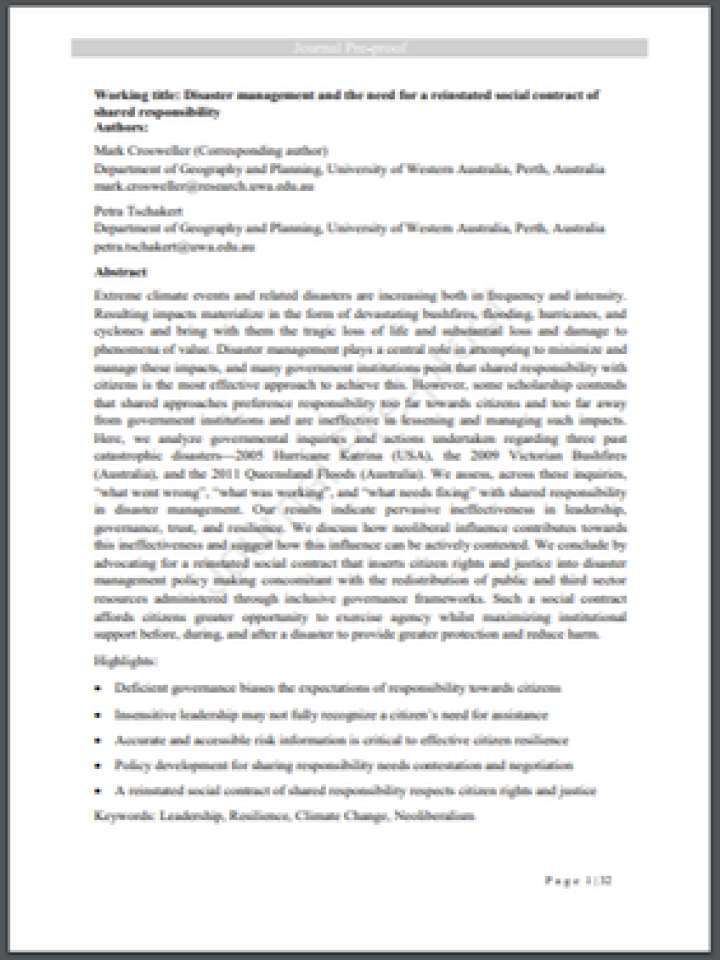Disaster management and the need for a reinstated social contract of shared responsibility
In this paper, the authors analyze governmental inquiries and actions undertaken regarding three past catastrophic disasters—2005 Hurricane Katrina (USA), the 2009 Victorian Bushfires (Australia), and the 2011 Queensland Floods (Australia). They assess, across these inquiries, “what went wrong”, “what was working”, and “what needs fixing” with shared responsibility in disaster management. Extreme climate events and related disasters are increasing both in frequency and intensity. Resulting impacts materialize in the form of devastating bushfires, flooding, hurricanes, and cyclones and bring with them the tragic loss of life and substantial loss and damage to phenomena of value. Disaster management plays a central role in attempting to minimize and manage these impacts, and many government institutions posit that shared responsibility with citizens is the most effective approach to achieve this. However, some scholarship contends that shared approaches preference responsibility too far towards citizens and too far away from government institutions and are ineffective in lessening and managing such impacts.
The results indicate pervasive ineffectiveness in leadership, governance, trust, and resilience. We discuss how neoliberal influence contributes towards this ineffectiveness and suggest how this influence can be actively contested. The authors conclude by advocating for a reinstated social contract that inserts citizen rights and justice into disaster management policy making concomitant with the redistribution of public and third sector resources administered through inclusive governance frameworks. Such a social contract affords citizens greater opportunity to exercise agency whilst maximizing institutional support before, during, and after a disaster to provide greater protection and reduce harm.
Explore further
